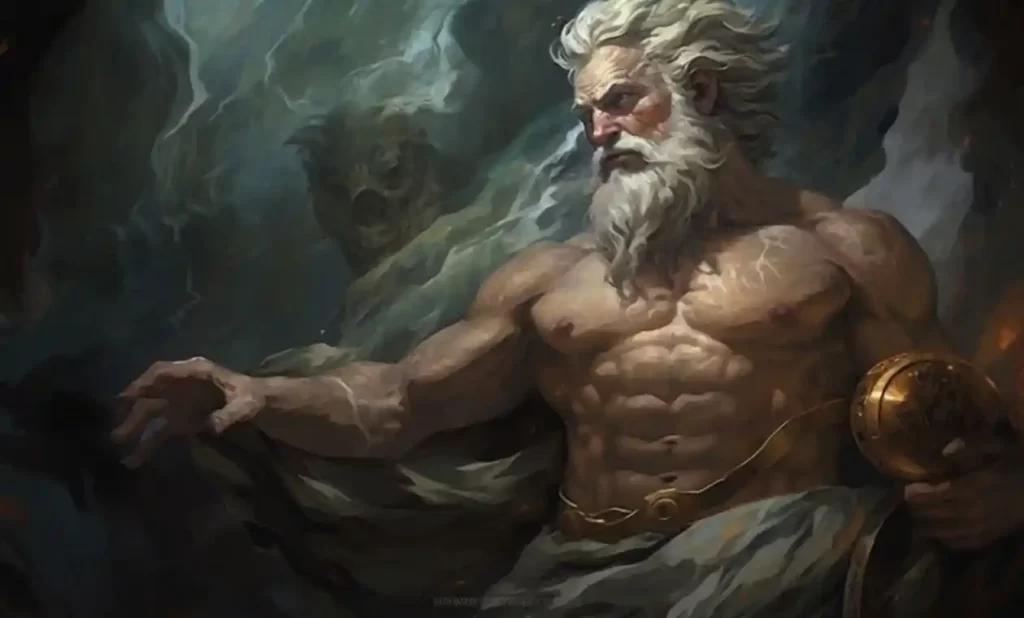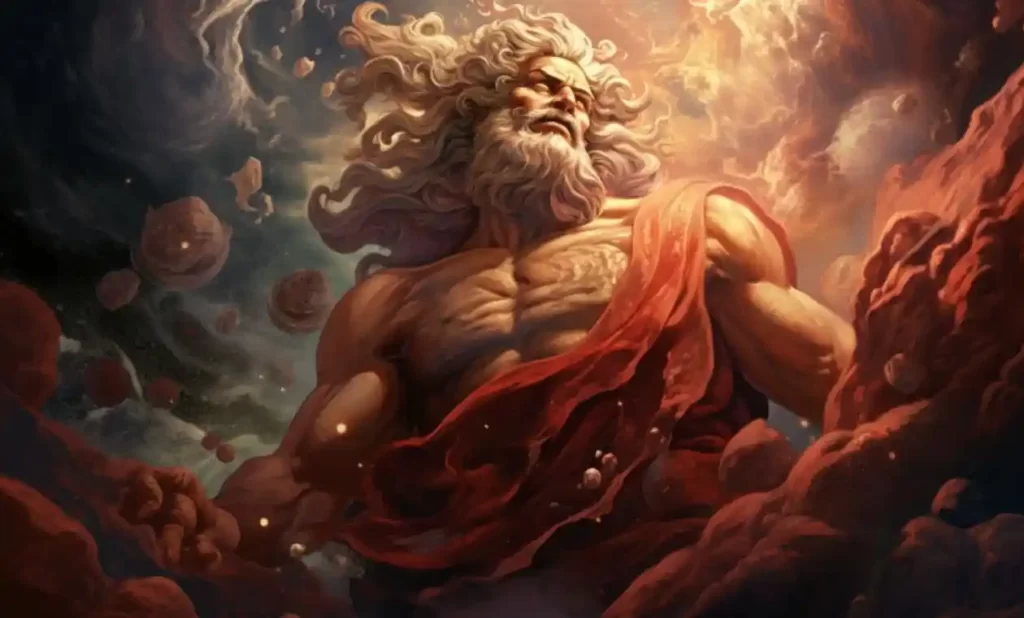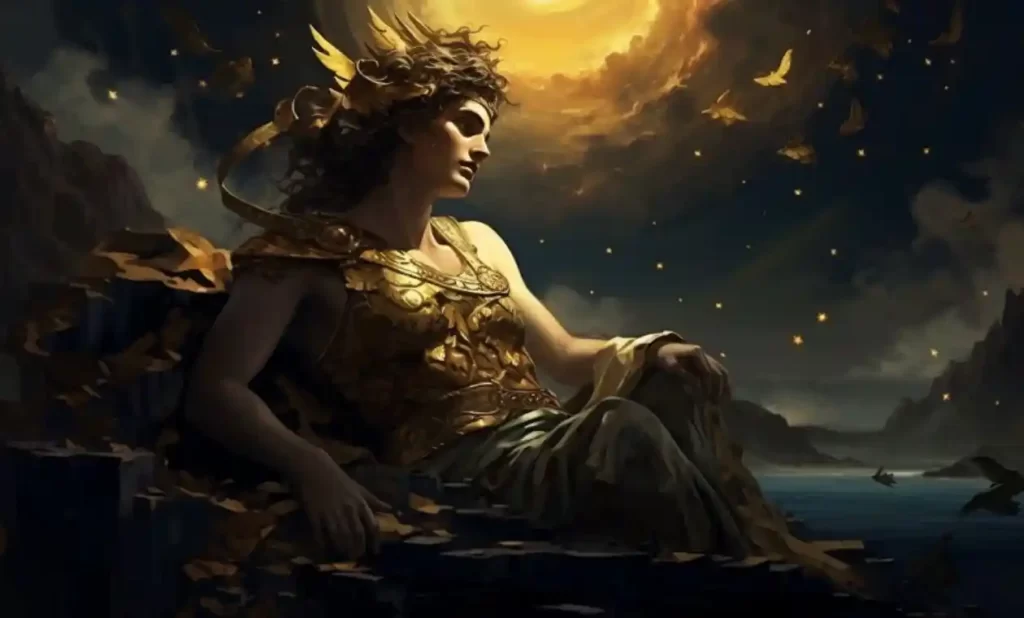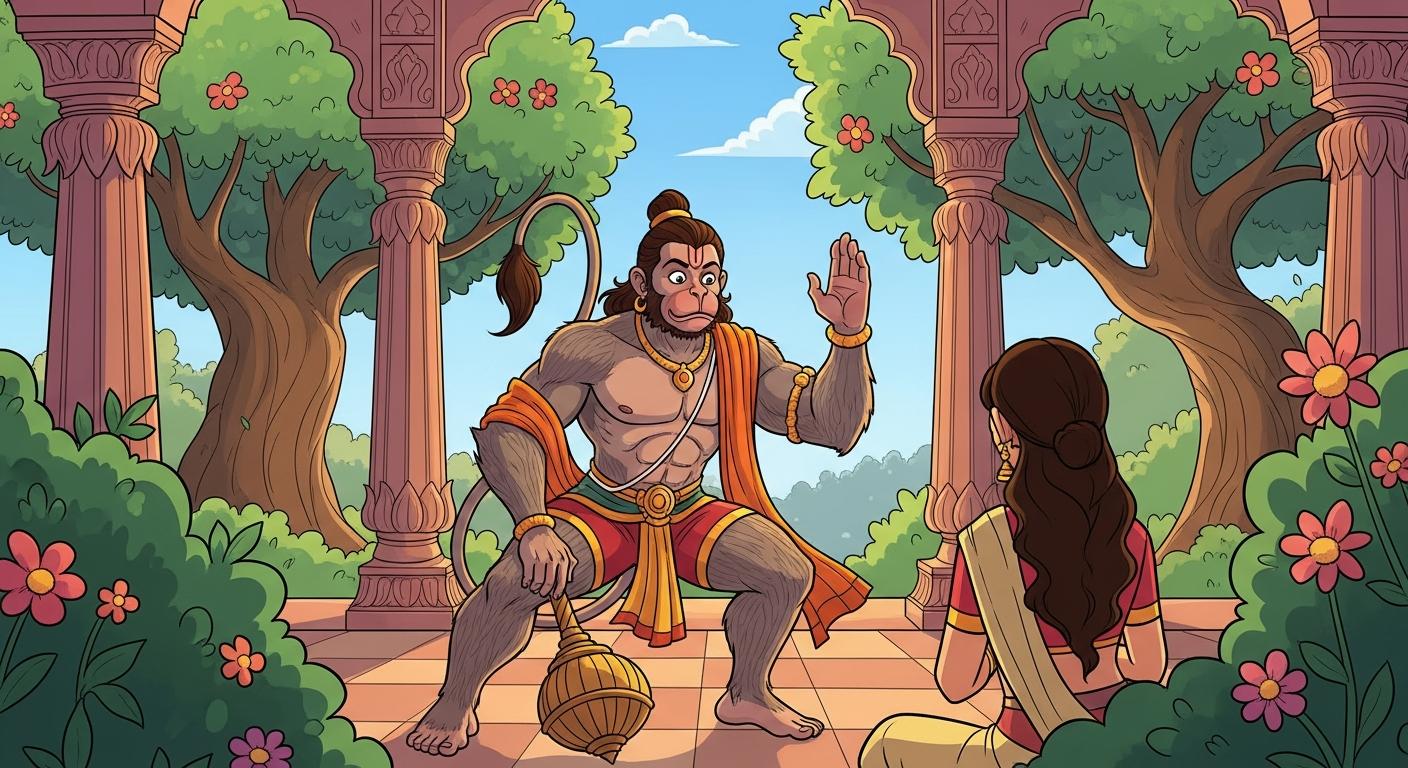Summarize this Article with:

In the fascinating world of Roman mythology, there is a powerful and awe-inspiring figure known as Jupiter. He is not just any god but the king of all gods, ruling over the vast expanse of the sky and commanding the mighty forces of thunder and lightning. Let’s embark on a journey to discover the incredible tales and remarkable attributes of Jupiter, the ruler of the heavens.
In the ancient Roman belief system, Jupiter held a special place as the supreme deity. His name comes from the Latin word “Iuppiter,” which translates to “father Jove.” Just like a father figure, Jupiter guided and protected both gods and mortals with his wisdom and might. Let’s delve deeper into the origins, symbolism, and captivating stories associated with this extraordinary god. Prepare to be amazed by the grandeur of Jupiter, the king of the gods and god of the sky and thunder.
Origins of Jupiter in Roman mythology
In Roman mythology, the origins of Jupiter are rooted in the ancient tales of gods and titans. Jupiter, also known as Jove, was the son of Saturn (the god of time) and Ops (the goddess of abundance). Saturn, fearful of being overthrown by his children, devoured each one of them as they were born. However, Ops managed to save Jupiter by hiding him on the island of Crete.
As Jupiter grew older and stronger, he sought to challenge his father’s reign and liberate his siblings. With the help of his mother, Jupiter was able to overthrow Saturn and establish himself as the new ruler of the gods. This marked a significant shift in the balance of power within the Roman pantheon.
Jupiter’s ascent to the throne symbolized the triumph of order and justice over chaos and oppression. He became the embodiment of divine authority and the supreme deity among the Roman gods. His immense power extended not only over the heavens but also over the earthly realms.
Jupiter Symboles
The sky and thunder are powerful symbols associated with Jupiter in Roman mythology, representing his dominion and might over the natural world. Let’s explore their significance in more detail:
1. The Sky (Heavens):
Jupiter’s association with the sky reflects his role as the king of the gods. The sky, with its vastness and boundless expanse, represents the highest realm of existence. Jupiter’s domain encompasses all celestial bodies, including the sun, moon, and stars. As the ruler of the heavens, he governs the cosmic order and maintains harmony in the universe.
The sky also symbolizes Jupiter’s omnipresence and omniscience. Just as the sky surrounds and encompasses everything beneath it, Jupiter’s influence extends to every corner of the world. He sees and knows all, observing the actions of gods and mortals alike.
Moreover, the sky represents the divine realm where the gods reside. Jupiter’s position as the god of the sky establishes his authority and superiority over the other deities. His lofty position exemplifies his wisdom, power, and the awe-inspiring nature of his rule.
2. Thunder and Lightning:

Thunder and lightning are potent symbols associated with Jupiter, embodying his fierce and awe-inspiring nature. When Jupiter hurls his thunderbolts, it signifies his immense power and the forceful manifestation of his divine will.
Thunder, with its rumbling and booming sound, instills a sense of fear and reverence. It serves as a warning to those who dare challenge Jupiter’s authority. The reverberations of thunder symbolize Jupiter’s voice, which carries his commands throughout the heavens and the earthly realms.
Lightning, the dazzling and electrifying phenomenon, represents the swift and unstoppable action of Jupiter. It is a symbol of his divine intervention and the execution of his justice. Lightning bolts, often depicted as weapons in Jupiter’s hands, are unleashed to punish wrongdoers and maintain order in the world.
Overall, the symbolism of the sky and thunder in relation to Jupiter underscores his supremacy, wisdom, and unyielding power. They serve as reminders of his role as the ruler of the gods and his ability to shape the natural world according to his divine will.
Jupiter’s role as the ruler of the heavens.
Jupiter’s role as the ruler of the heavens holds great importance in Roman mythology. Let’s explore some key aspects of this significance:
Supreme Authority: As the king of the gods, Jupiter’s position as the ruler of the heavens signifies his ultimate authority and sovereignty over all other deities. He stands at the pinnacle of the divine hierarchy, making decisions that affect the gods, mortals, and the entire cosmos. His rule ensures order, balance, and harmony within the celestial realm.
Cosmic Balance: Jupiter’s governance of the heavens involves maintaining the balance and harmony of the universe. He oversees the movements of celestial bodies, ensuring the proper functioning of celestial cycles, such as the rising and setting of the sun, the phases of the moon, and the changing of the seasons. By regulating these cosmic rhythms, Jupiter ensures the stability and predictability of the natural world.
Weather and Natural Phenomena: Jupiter’s role as the ruler of the heavens grants him control over the weather and natural phenomena. He commands the forces of thunder, lightning, storms, and rain. This authority allows him to bestow blessings through abundant harvests or display his wrath through destructive tempests. Jupiter’s ability to influence weather patterns emphasizes his power over the earth and his ability to shape the destiny of mortals.
Divine Justice and Protection: As the ruler of the heavens, Jupiter acts as the ultimate judge and arbiter of justice. He safeguards the order of the universe by ensuring that gods and mortals adhere to their assigned roles and responsibilities. Jupiter punishes the wicked and rewards the righteous, upholding moral principles and maintaining cosmic equilibrium. In this role, he acts as a protector, defending the innocent and maintaining divine order in the face of chaos.
Symbol of Power and Wisdom: Jupiter’s role as the ruler of the heavens embodies immense power and wisdom. His authority over the celestial realm signifies his superior knowledge, foresight, and divine intellect. Mortals and gods alike look up to Jupiter for guidance and seek his wisdom in matters of governance, strategy, and decision-making.
Jupiter’s extraordinary powers and abilities.
Jupiter possesses extraordinary powers and abilities that set him apart as a formidable deity in Roman mythology. Let’s explore some of these remarkable attributes:
Thunder and Lightning Manipulation:
Jupiter wields the power to control thunder and lightning. With a mere gesture, he can summon thunderstorms and unleash bolts of lightning from the sky. This ability showcases his dominance over the forces of nature and his capacity to inspire awe and fear among gods and mortals alike.
Shape-Shifting:
One of Jupiter’s notable abilities is shape-shifting, enabling him to transform his appearance at will. He can assume various forms, whether it be a regal eagle soaring through the skies, a mighty bull charging with strength, or any other guise he chooses. This shape-shifting power grants him versatility and allows him to interact with the mortal realm incognito or deliver divine messages.
Weather Manipulation:
Jupiter’s influence extends beyond thunder and lightning. He possesses control over the weather itself. He can calm raging storms, summon gentle rain for fertile harvests, or unleash tempests to punish wrongdoing. His mastery over weather patterns emphasizes his role as a protector of the natural world and his ability to shape the destiny of mortals.
Divine Authority:
As the king of the gods, Jupiter holds supreme authority over the entire Roman pantheon. He can dictate the actions and decisions of other gods, mediate disputes, and enforce order among them. His word is final and carries immense weight, ensuring that the divine realm operates harmoniously under his rule.
Prophetic Insight:
Jupiter possesses profound wisdom and foresight. He is associated with prophetic visions and the ability to see into the future. Mortals seek his counsel for guidance and predictions, as he can unravel the mysteries of destiny and offer insight into important events yet to come.
Immortality and Invincibility:
Like other gods in Roman mythology, Jupiter is immortal and immune to aging or disease. He is impervious to most mortal weapons and possesses great resilience and endurance. This invincibility further reinforces his stature as an omnipotent and indomitable force.
Jupiter’s extraordinary powers and abilities demonstrate his supreme dominion over the heavens and his unmatched status among the Roman gods. His control over thunder and lightning, shape-shifting prowess, manipulation of weather, divine authority, prophetic insight, and invincibility make him a truly formidable and awe-inspiring deity.
How Jupiter’s power and authority set him apart from other gods.
Jupiter’s power and authority set him apart from other gods in Roman mythology, establishing him as a deity of unparalleled significance. Here are some key aspects that differentiate Jupiter from his divine counterparts:
King of the Gods:
Jupiter holds the esteemed title of the king of the gods, which grants him supreme authority and superiority over all other deities. Unlike the other gods who govern specific domains or aspects of life, Jupiter’s dominion extends over the entire cosmic realm. His role as the divine ruler sets him apart as the most influential and respected deity among the Roman pantheon.
Control over Natural Forces:
One of Jupiter’s distinguishing characteristics is his control over natural forces, particularly thunder and lightning. This ability represents immense power and is symbolic of his authority over the elemental forces of nature. While other gods possess their own abilities and spheres of influence, none can rival the raw and awe-inspiring might of Jupiter’s control over these potent forces.
Wise and Just Ruler:
Jupiter’s power is not solely based on his physical prowess but also on his wisdom and sense of justice. As the king of the gods, he embodies qualities of fairness, righteousness, and moral judgment. His decisions and actions are guided by a deep understanding of cosmic balance and the welfare of both gods and mortals. This wise and just ruling nature distinguishes him as a leader of divine wisdom and discernment.
Governance and Mediation:
Jupiter’s authority extends beyond his personal powers. He possesses the ability to govern and mediate among other gods, settling disputes and maintaining order within the divine hierarchy. This administrative role showcases his capacity to exercise control not only through direct power but also through diplomatic and leadership skills. His role as a mediator sets him apart as a god capable of ensuring harmony and cooperation among the divine beings.
Association with Fate and Prophecy:
Jupiter’s connection with fate and prophecy further sets him apart from other gods. He is often depicted as having a deep understanding of destiny and the ability to unveil hidden knowledge of the future. This association highlights his elevated status as a deity with insights into the grand tapestry of existence, making him a figure of reverence and sought-after guidance.
Family Connections

Jupiter’s family members
Jupiter, the mighty king of the gods, has an intriguing family tree within Roman mythology. Let’s delve into the members of Jupiter’s divine lineage:
Parents:
Father: Saturn (also known as Cronus in Greek mythology) was the god of time and the leader of the Titans. He ruled during the mythical Golden Age but was later overthrown by Jupiter.
Mother: Ops (also known as Rhea) was the goddess of fertility and abundance. She played a crucial role in saving Jupiter from being devoured by Saturn.
Siblings:
Neptune (Poseidon): The god of the sea and earthquakes, Neptune was one of Jupiter’s brothers. He possessed dominion over the vast oceans and was known for his trident.
Pluto (Hades): Pluto, another brother of Jupiter, ruled the underworld and was responsible for the realm of the dead. He presided over matters of the afterlife and wealth found within the Earth.
Juno (Hera): Jupiter’s sister and wife, Juno, was the queen of the gods and the goddess of marriage and childbirth. She played a significant role in Roman mythology and often interacted with Jupiter in various tales.
Vesta (Hestia): Vesta was Jupiter’s sister and the goddess of the hearth, home, and sacred fire. She was highly revered and represented the importance of domestic harmony.
Children:
Jupiter had numerous children with various divine and mortal partners. Some of his notable offspring include:
Mars (Ares): The god of war and one of Jupiter’s sons, Mars embodied courage, strength, and military prowess.
Mercury (Hermes): Mercury, the messenger of the gods, possessed incredible speed and wit. He served as a herald and guided souls to the underworld.
Minerva (Athena): Minerva, born from Jupiter’s forehead fully grown and armored, was the goddess of wisdom, strategic warfare, and crafts.
Apollo and Diana (Apollo and Artemis): These twin siblings were associated with the sun and the moon, respectively. Apollo governed music, poetry, and healing, while Diana presided over the hunt and wilderness.
Venus (Aphrodite): Venus, the goddess of love and beauty, was born from the sea foam and became one of Jupiter’s most renowned children.
These family connections among the gods add depth and complexity to the rich tapestry of Roman mythology. Jupiter’s relationships with his siblings, parents, and children shape his interactions and influence within the divine realm.
Jupiter and Juno, role as king and queen of the gods
Jupiter’s relationship with his wife, Juno, is a significant aspect of Roman mythology. As the king and queen of the gods, their partnership and dynamic hold great importance. Let’s explore their relationship and their roles within the divine hierarchy:
Marriage and Partnership:
Jupiter and Juno’s union was considered the epitome of divine matrimony in Roman mythology. Their marriage symbolized the sacred bond between a husband and wife, serving as a model for earthly marriages. Juno was not only Jupiter’s wife but also his sister, emphasizing the intricate interconnections within the divine family.
Queen of the Gods:
Juno, known as the queen of the gods, held a prominent position alongside Jupiter. She embodied the ideals of femininity, motherhood, and marriage. Juno played a crucial role in representing the welfare and protection of women, overseeing childbirth, and ensuring the sanctity of marital bonds.
Divine Governance:
As king and queen of the gods, Jupiter and Juno shared the responsibility of governance within the divine realm. They presided over the gods, arbitrated disputes, and upheld the order and harmony of the cosmos. Jupiter’s role as the ruler was complemented by Juno’s influence as his queen, as they jointly made decisions that affected the divine hierarchy.
Protectors of Marriage:
Jupiter and Juno were regarded as protectors of marriage and the sacred institution of matrimony. They were invoked in Roman weddings and celebrated during marital ceremonies. The couple served as role models for the idealized relationship between spouses, promoting fidelity, commitment, and mutual respect.
Challenges and Struggles:
Despite their powerful roles, Jupiter and Juno’s relationship was not without challenges. Jupiter’s infidelity and affairs with other goddesses and mortal women strained their bond. Juno often displayed her displeasure and sought to punish those involved in her husband’s transgressions. Their conflicts and reconciliations provided fodder for many mythological tales and served as a reflection of the complexities of human relationships.
Jupiter’s children and their significance in Roman mythology
Jupiter, the king of the gods, had a vast array of children in Roman mythology, each with their own unique significance and roles. Let’s explore some of Jupiter’s notable children and their contributions to Roman mythology:
Mars (Ares):
Mars, the god of war and one of Jupiter’s sons, played a crucial role in Roman mythology. He represented the embodiment of courage, strength, and military prowess. Mars was revered as a divine protector and was often invoked by soldiers before battle. His significance in Roman society reflects the importance placed on martial virtues and the defense of the empire.
Mercury (Hermes):
Mercury, another son of Jupiter, served as the messenger of the gods. Known for his speed and wit, Mercury acted as a herald, conveying messages between the divine realm and mortals. He was also associated with commerce, trade, and travelers, symbolizing the connection between different realms and facilitating communication and exchange.
Minerva (Athena):
Minerva, born fully grown and armored from Jupiter’s forehead, was the goddess of wisdom, strategic warfare, and crafts. She embodied intellectual pursuits, strategic thinking, and artistic creativity. Minerva symbolized the pursuit of knowledge, the arts, and the virtues of wisdom and reason. She was also revered as the patroness of craftsmen and artisans.
Apollo and Diana (Apollo and Artemis):
Apollo and Diana, twin siblings and children of Jupiter, held significant roles in Roman mythology. Apollo represented the sun, music, poetry, healing, and prophecy. He was celebrated as the god of light and enlightenment. Diana, on the other hand, governed the moon, the hunt, and the wilderness. She was associated with nature, independence, and the protection of animals.
Venus (Aphrodite):
Venus, born from sea foam, was the goddess of love, beauty, and desire. She embodied the ideals of romance, attraction, and sensuality. Venus’s influence extended to matters of fertility, charm, and passionate relationships. She played a pivotal role in love stories and was associated with the concept of divine and human love.
Worship and Festivals
The worship of Jupiter held a prominent place in ancient Rome, as he was considered the king of the gods and the most powerful deity within the Roman pantheon. Let’s explore the worship of Jupiter in ancient Rome:
Temples and Altars
State Rituals and Festivals
Sacrifices and Offerings
Priesthood
Personal Devotion
Temples dedicated to Jupiter
Several magnificent temples were dedicated to Jupiter in ancient Rome, serving as focal points for his worship and symbolizing his supreme authority. Here are some notable temples dedicated to Jupiter:
Temple of Jupiter Optimus Maximus:
The Temple of Jupiter Optimus Maximus, also known as the Capitoline Temple, was the most significant and revered temple dedicated to Jupiter. It stood atop the Capitoline Hill in Rome, overlooking the city. Built in the 6th century BCE and later rebuilt multiple times, the temple was an architectural masterpiece. It housed a colossal statue of Jupiter seated on a throne, along with statues of Juno and Minerva. The temple represented the might and glory of Rome and was a central hub for religious and civic activities.
Temple of Jupiter Capitolinus:
The Temple of Jupiter Capitolinus was located on the Capitolinus Hill, adjacent to the Temple of Jupiter Optimus Maximus. It was part of the Capitoline Triad, consisting of Jupiter, Juno, and Minerva. The temple was initially built in the 6th century BCE but underwent various reconstructions. It was the primary religious center of Rome and hosted important state ceremonies and rituals.
Temple of Jupiter Stator:
The Temple of Jupiter Stator, meaning “Jupiter the Stayer,” was situated in the Roman Forum. It was constructed to honor Jupiter for his aid in helping the Roman army during a battle against the Sabines. The temple symbolized Jupiter’s role as a protector and upholder of the city’s stability. It was believed that praying at this temple could ensure the endurance and stability of Rome.
Temple of Jupiter Tonans:
The Temple of Jupiter Tonans, meaning “Jupiter the Thunderer,” was dedicated to Jupiter in his aspect as the wielder of thunder and lightning. It was built by Emperor Augustus to commemorate his narrow escape from a lightning strike. Located near the Theater of Pompey, the temple served as a reminder of Jupiter’s power over natural forces.
Temple of Jupiter Feretrius:
The Temple of Jupiter Feretrius was an ancient Roman temple dedicated to Jupiter in his role as the receiver of spoils. It was believed to have been built by Romulus, the legendary founder of Rome. This temple housed the spolia opima, the most honorable spoils of war, offered by a Roman general who defeated an enemy leader in single combat. The spolia opima were considered the ultimate honor bestowed upon Jupiter.
These temples dedicated to Jupiter stood as magnificent structures, representing the veneration and devotion of the Roman people toward the king of the gods. They served as important centers for religious ceremonies, state rituals, and public gatherings, underscoring the significance of Jupiter’s role in Roman society.
Popular festivals and rituals associated with Jupiter
Jupiter, as the king of the gods, was honored through various popular festivals and rituals in ancient Rome. These celebrations aimed to show devotion, seek blessings, and express gratitude to the mighty deity. Here are some of the notable festivals and rituals associated with Jupiter:
Feriae Iovis (Festival of Jupiter):
The Feriae Iovis, also known as the “Festival of Jupiter,” was an annual celebration dedicated to Jupiter. It took place on the Ides of March (March 15th). The festival included processions, public feasts, games, and religious ceremonies to honor Jupiter and seek his favor for the well-being of Rome and its people.
Ludi Romani (Roman Games):
The Ludi Romani were a series of ancient Roman games held in September. These games were initially organized as a celebration of Jupiter’s triumph over the Titans. The festivities included theatrical performances, chariot races, gladiatorial contests, and other public spectacles. They served as a grand display of Roman culture and were a way to express devotion to Jupiter.
Ludi Capitolini (Capitoline Games):
The Ludi Capitolini were games held in honor of Jupiter, Juno, and Minerva, known as the Capitoline Triad. These games were celebrated every four years, coinciding with the election of new Roman consuls. The festivities included athletic competitions, theatrical performances, and religious ceremonies. The Capitoline Games were considered one of the most prestigious events in ancient Rome.
Parentalia:
The Parentalia was a nine-day period in February dedicated to honoring deceased ancestors. On the final day of the Parentalia, a public ceremony called the Feralia was conducted. As part of this ritual, offerings were made to Jupiter and other deities to ensure the well-being and protection of ancestral spirits.
Epulum Iovis (Banquet of Jupiter):
The Epulum Iovis was a ceremonial banquet held in honor of Jupiter. It was a lavish feast prepared for the gods, with the statue of Jupiter given a place of honor. The banquet was part of religious ceremonies and often accompanied by music, dancing, and offerings to express gratitude to Jupiter for his blessings.
These festivals and rituals dedicated to Jupiter played a significant role in Roman religious and cultural life. They provided opportunities for communal celebration, expression of piety, and the strengthening of social bonds. Through these festivities, the Roman people sought to honor Jupiter and ensure his continued favor and protection for themselves and their city.
Famous Stories and Legends
Popular myths and legends involving Jupiter
Jupiter, the king of the gods, is at the center of several captivating myths and legends in Roman mythology. Here are a few popular stories associated with Jupiter:
Overthrowing Saturn and Battle Against the Titans:
Long ago, Saturn (Cronus), the ruler of the Titans, held dominion over the world during a time known as the Golden Age. However, a prophecy foretold that one of his children would overthrow him, just as Saturn had overthrown his own father, Uranus. Fearing this prediction, Saturn devised a cruel plan to prevent his downfall. Upon the birth of each of his children, he swiftly devoured them.
But fate had other plans for Saturn’s sixth child, Jupiter (Zeus). His mother, Ops (Rhea), grew weary of losing her children to Saturn’s insidious actions. Determined to save her newborn son, she devised a clever scheme. She wrapped a stone in swaddling clothes, presenting it to Saturn as their child. Unbeknownst to Saturn, Jupiter was secretly taken to the secluded island of Crete, where he would grow in secret.
As Jupiter matured, he became aware of his divine heritage and the prophecy that foretold his destiny to overthrow his father. Determined to fulfill this prophecy, he sought the aid of his fellow Titan siblings, who had been imprisoned by Saturn. With their support, Jupiter planned a revolt against their tyrannical father and the ruling Titans.
The Titanomachy, a colossal battle, ensued. The Titans, led by Saturn, fought fiercely against Jupiter and his Olympian allies. The conflict raged for ten long years, with the heavens and earth trembling under the weight of the clash between the divine forces.
Jupiter, armed with his lightning bolts and imbued with the power of the other gods, unleashed his formidable might against the Titans. The Olympian gods displayed incredible prowess and valor, fighting alongside Jupiter to overthrow their oppressive predecessors.
In the end, Jupiter and the Olympians emerged victorious. With a mighty surge of power, they banished the defeated Titans into the depths of Tartarus, the darkest realm of the underworld. Jupiter ascended as the new king of the gods, establishing a new era known as the Silver Age.
Creation of Man:
In Roman mythology, there is a captivating story that tells of Jupiter’s role in the creation of humankind. Here is the story of the creation of man:
In the early days of the world, when the Earth was still a young and barren place, Jupiter, along with his brothers Neptune and Pluto, decided to bring life to this empty realm. They set out on a mission to create a new being that would inhabit and populate the Earth.
Jupiter, the mighty king of the gods, took charge of the task. He gathered a lump of clay, meticulously shaping and molding it with his divine hands. With each stroke and careful detail, he crafted the form of the first human beings. Jupiter bestowed upon these clay figures a form that resembled his own divine image.
Once he was satisfied with the physical form, Jupiter breathed life into the clay figures. His divine breath infused them with vitality and consciousness. As the breath of Jupiter flowed into their bodies, these beings came to life, awakening with intellect and reason.
Jupiter’s creation of humankind showcased his role as a divine creator and provider of life. The humans he crafted out of clay became the ancestors of all future generations, carrying within them the spark of Jupiter’s divine essence.
This myth symbolizes the unique bond between humanity and the gods, as humans were believed to possess a fragment of the divine within them, courtesy of Jupiter’s life-giving breath. It also emphasizes Jupiter’s nurturing and caring nature as the one who brought forth the gift of life and intelligence to the mortal realm.
The creation of man by Jupiter stands as a testament to his supreme power and creative prowess, illustrating his role as a benevolent deity and the divine source of human existence.
Jupiter and Io:
In Roman mythology, there is a captivating tale that revolves around Jupiter’s infidelity and his relationship with Io. Here is the story of Jupiter and Io:
Jupiter, the king of the gods, was known for his numerous affairs and amorous escapades. One day, his gaze fell upon Io, a beautiful nymph. Enthralled by her charm and grace, Jupiter desired to be with her. However, he knew that he had to conceal his affair from his wife, Juno, who possessed a keen intuition and was often suspicious of his infidelity.
To keep his relationship with Io a secret, Jupiter transformed her into a magnificent white heifer, a cow, using his divine powers. In this bovine form, Io was unable to reveal her true identity or communicate her plight to others.
Despite Jupiter’s efforts to keep Io hidden, Juno sensed her husband’s deception. Feigning curiosity, Juno asked Jupiter to give her the beautiful cow as a gift. Reluctantly, Jupiter had no choice but to comply with Juno’s request, handing over Io to his wife.
Juno, ever vigilant, placed Io under constant surveillance, assigning Argus, a hundred-eyed giant, to watch over her. Argus was an unwavering guardian, with only a few of his eyes closing at any given time, ensuring that Io could not escape or communicate with Jupiter.
Driven to despair and longing to be free from her bovine form, Io wandered the earth in sorrow. Her path led her to the river god Inachus, her father, who recognized her despite her transformed state. Inachus revealed to Io that her only hope for freedom lay in seeking the assistance of Jupiter.
Upon hearing this, Io made her way to Mount Olympus, where she beseeched Jupiter for mercy and release from her bovine guise. Touched by her plea, Jupiter devised a plan to save Io from her plight.
Jupiter summoned Mercury (Hermes), the messenger of the gods, and commanded him to slay Argus and free Io. Mercury, using his cunning and swiftness, lulled Argus to sleep with a soothing melody and then swiftly beheaded him.
With Argus defeated, Io was finally free from her bovine form. Jupiter restored her to her original human appearance, allowing Io to regain her voice and express her gratitude. She was able to reunite with her father, Inachus, and continue her life as a nymph.
The Rape of Ganymede:
In Roman mythology, there is a well-known story that revolves around Jupiter’s romantic pursuits and the abduction of Ganymede, a handsome Trojan prince. Here is the story of the Rape of Ganymede:
Ganymede, a young and exceptionally beautiful prince from Troy, caught the attention of Jupiter, the king of the gods. Struck by Ganymede’s irresistible allure, Jupiter fell deeply in love with him. Desiring to have Ganymede as his own and as a constant companion on Mount Olympus, Jupiter devised a plan to bring the mortal prince into the realm of the gods.
One day, while Ganymede was tending to his flock on Mount Ida, Jupiter descended from the heavens in the form of an eagle. Swiftly and effortlessly, the eagle swooped down and abducted Ganymede, carrying him away to Mount Olympus, the divine abode of the gods.
Once Ganymede arrived on Mount Olympus, Jupiter revealed his true identity as the king of the gods. He offered Ganymede the position of cupbearer, an esteemed role that involved serving nectar and ambrosia, the divine food and drink of the gods, during their banquets and feasts. Accepting Jupiter’s proposal, Ganymede became the cupbearer of the gods, taking his place alongside the Olympians.
As Ganymede served the gods on Mount Olympus, he was granted immortality and eternal youth. He became forever beloved by Jupiter and the other deities. Ganymede’s beauty and grace were immortalized, and he became a symbol of divine beauty and the ideal of youthful perfection.
The story of the Rape of Ganymede highlights Jupiter’s romantic pursuits and his ability to bestow immortality upon mortals. It portrays Jupiter’s irresistible attraction to the beauty of Ganymede and his desire to have the young prince as a permanent fixture in his divine realm.
Ganymede’s abduction and transformation into the cupbearer of the gods serve as a testament to the power and influence of Jupiter, showcasing his ability to elevate mortals to the realm of the divine. The myth symbolizes the romantic and transformative nature of Jupiter’s pursuits and the immortalization of Ganymede as a beloved figure among the gods.
The Story of Semele:
Semele, a mortal woman of great beauty, captured the attention and love of Jupiter, the king of the gods. Their passionate affair remained a secret for a time, concealed from Jupiter’s wife, Juno. However, Juno soon grew suspicious of her husband’s infidelity and devised a plan to expose the truth and seek revenge.
Disguising herself as an old woman, Juno approached Semele and struck up a conversation. Sensing Semele’s curiosity about her lover’s true form, Juno cunningly planted seeds of doubt in her mind. She convinced Semele to ask Jupiter to reveal himself in his full divine splendor, assuring her that such a sight would solidify his love and commitment.
Blinded by her love for Jupiter and yearning for proof of his devotion, Semele succumbed to Juno’s manipulative words. She approached Jupiter and made the request, oblivious to the consequences that would follow. Unable to refuse her plea due to his oath, Jupiter reluctantly agreed to reveal himself.
Jupiter, true to his nature as the god of thunder and lightning, manifested in his magnificent divine form. He appeared before Semele amidst thunderclaps and flashes of lightning, radiating his godly power. The sight was too overwhelming for a mortal to bear.
Semele, consumed by the intense brilliance of Jupiter’s true form, was unable to withstand the divine presence. She was tragically incinerated by the overwhelming energy and fire unleashed by Jupiter’s revelation. It was a devastating end to their ill-fated love affair.
However, in the midst of this tragedy, Jupiter managed to save their unborn child. Swiftly intervening, he sewed the premature baby into his own thigh, where the child, Dionysus (also known as Bacchus), would continue to grow and develop until he was ready to be born.
In due time, Dionysus was delivered from Jupiter’s thigh, emerging as a divine being. Dionysus, the god of wine, revelry, and ecstasy, would go on to become one of the most celebrated and influential gods in Roman mythology.
The Story of Callisto:
Callisto, a stunning nymph and devoted companion of the goddess Diana (Artemis), caught the eye of Jupiter, the king of the gods. Enchanted by Callisto’s beauty, Jupiter disguised himself as Diana and approached her with deceitful intentions. Under the false guise, he seduced Callisto, taking advantage of her trust.
Unbeknownst to Callisto, she became pregnant with Jupiter’s child. However, her secret was not kept hidden for long. Diana, the goddess of the hunt and protector of chastity, discovered Callisto’s condition and was furious at the violation of her sacred company.
Filled with anger and a sense of betrayal, Diana banished Callisto from her company, casting her out into the wilderness. Left to wander alone, Callisto’s life took a tragic turn as she faced the challenges of survival while burdened with her secret pregnancy.
Years later, after Callisto had given birth to a son named Arcas, she encountered him in the forest. Unaware of her true identity, Arcas, now a skilled hunter, saw the bear that Callisto had been transformed into by the wrathful Juno, Jupiter’s wife.
As Arcas raised his spear to strike the bear, Jupiter, in an act of compassion and love for his son and former lover, intervened. He halted time, freezing the scene in place. Jupiter then transformed Arcas into a bear as well, creating the constellation Ursa Minor.
In an act of further mercy, Jupiter raised both Callisto and Arcas to the heavens, transforming them into the constellations Ursa Major and Ursa Minor, respectively. This immortalization preserved their bond and ensured their eternal presence in the night sky.
The Story of Europa:
Europa, a princess of Phoenicia, possessed such unparalleled beauty that it captivated the attention of Jupiter, the king of the gods. Determined to approach Europa without alarming her, Jupiter transformed himself into a majestic white bull, radiating an aura of calmness and serenity.
One day, while Europa was strolling near the seashore, she spotted the magnificent bull and felt drawn to its gentle nature. Unbeknownst to her, it was Jupiter in disguise. Overcome by curiosity and enchanted by the bull’s peaceful demeanor, Europa cautiously approached and eventually gained the courage to climb onto its back.
To her astonishment, the bull swiftly charged into the sea, carrying Europa across the waves. The water shimmered as the bull elegantly swam towards its destination: the island of Crete. It was during this journey that Europa realized the true identity of the bull and was overcome with a mix of fear and excitement.
Reaching the shores of Crete, Jupiter revealed his true form as the king of the gods. Europa was awestruck by his divine radiance. Recognizing her worthiness, Jupiter declared Europa as the queen of Crete, showering her with affection and devotion.
During her time as queen, Europa bore three sons to Jupiter: Minos, Rhadamanthus, and Sarpedon. These sons would go on to become renowned figures in Greek mythology. Minos, in particular, became a legendary king who ruled Crete with great wisdom and justice.
The story of Europa showcases Jupiter’s penchant for transforming himself to pursue his romantic desires and the consequences that follow. It also symbolizes the allure of the unknown and the transformative power of love. Europa’s journey from Phoenicia to Crete represents a metaphorical transition from her previous life to a new realm of divine association and motherhood.
The Story of Leda and the Swan:
Leda, the beautiful wife of King Tyndareus of Sparta, became the unwitting participant in a divine encounter with Jupiter, the king of the gods. One day, Jupiter took the form of a magnificent swan and approached Leda with grace and allure.
Enchanted by the swan’s divine presence, Leda succumbed to its seductive charm. In the embrace of the swan, she conceived two sets of twins. From her mortal husband Tyndareus, Leda bore two mortal sons named Castor and Pollux (also known as Polydeuces). Simultaneously, she conceived two daughters, Helen and Clytemnestra, from her divine encounter with Jupiter.
The story of Leda and the Swan is closely intertwined with the epic tale of the Trojan War. Helen, one of Leda’s daughters, grew up to be exceedingly beautiful and was sought after by numerous suitors. Eventually, she married King Menelaus of Sparta, but her abduction by Paris, a Trojan prince, sparked the Trojan War.
The war between the Greeks and the Trojans was fought for ten years, with the Greeks seeking to reclaim Helen from Troy. The conflict was marked by heroism, tragedy, and the intervention of various gods and goddesses.
Castor and Pollux, the mortal twin brothers, fought alongside the Greek heroes during the war. They were known for their exceptional bravery and skills in battle. In some versions of the myth, they were even granted immortality and became the divine protectors of sailors and travelers.
The story of Leda and the Swan reflects Jupiter’s ability to assume various forms in his pursuit of mortal love interests. It showcases the consequences of his divine affairs and the impact they had on both mortal and divine realms. The beauty and allure of Leda and her children played a significant role in shaping the events of the legendary Trojan War, leaving a lasting imprint on Greek mythology and literature.
Influence in Art and Culture:
Jupiter, as the king of the gods and a prominent figure in Roman mythology, has had a profound influence on art, literature, and culture throughout history. His powerful character, divine attributes, and rich mythology have inspired countless artistic creations, literary works, and cultural representations. Here are some notable examples of Jupiter’s influence:
Artistic Depictions:
Jupiter has been a popular subject in visual arts, inspiring numerous sculptures, paintings, and other artistic creations. In classical art, he is often portrayed as a regal figure with a majestic presence, depicted with a thunderbolt in hand, symbolizing his role as the god of thunder and lightning. The famous sculpture known as the “Statue of Zeus at Olympia” is a monumental representation of Jupiter, showcasing his strength and authority.
Literary References:
Jupiter’s character and stories have been widely referenced in literature, particularly in ancient Roman literature and poetry. Roman authors such as Ovid, Virgil, and Seneca frequently mentioned Jupiter and incorporated his myths and legends into their works. Ovid’s epic poem “Metamorphoses” includes several stories involving Jupiter, showcasing his amorous adventures, his interactions with mortals, and his role as the ruler of the gods.
Influence on Modern Portrayals:
Jupiter’s character and attributes have had a lasting impact on modern portrayals of gods and kings. His portrayal as a powerful deity with dominion over the heavens and earth has influenced the concept of a supreme god or ruler in various cultures and religions. The archetype of a wise and just king, inspired by Jupiter’s leadership qualities, is often depicted in literature, films, and other forms of popular culture.
Jupiter’s influence can be seen in the portrayal of gods and kings in fantasy literature and mythology-based works. Authors like J.R.R. Tolkien, in his “The Lord of the Rings” series, and George R.R. Martin, in “A Song of Ice and Fire,” draw inspiration from Jupiter’s majestic presence and godlike authority when creating their own divine and royal figures.
In popular culture, Jupiter’s influence can be observed in the depiction of gods and rulers in various media, including films, television series, and video games. Characters with godlike powers and a commanding presence often bear similarities to Jupiter, showcasing his enduring influence on modern storytelling.
Conclusion
Jupiter, as the king of the gods and the god of the sky and thunder, holds immense significance in Roman mythology and has left a lasting impact on Western culture. His importance can be summarized as follows:
Jupiter’s role as the king of the gods signifies his supreme authority and power within the Roman pantheon. As the ruler of the heavens, he governed over all other deities and controlled the forces of nature, particularly the sky and thunder. This association with thunderbolts symbolized his ability to dispense justice and maintain order in the cosmos.
His enduring legacy in Roman mythology is evident in the numerous myths and legends that revolve around his divine adventures, relationships, and interventions in the mortal realm. Stories such as his overthrowing of his father Saturn, the battle against the Titans, his romantic pursuits, and his interactions with mortal beings have captivated generations and continue to be celebrated in art, literature, and cultural representations.
Jupiter’s influence extends beyond Roman mythology, permeating Western culture. His portrayal as a wise and just ruler, combined with his association with thunder and power, has shaped the archetypes of kings and gods in literature, art, and popular culture. From classical art and ancient literature to modern works of fantasy and fiction, Jupiter’s character and attributes have inspired countless artistic creations and become ingrained in the collective imagination.
Furthermore, Jupiter’s impact on Western culture can be observed in the enduring influence of Roman mythology itself. Roman mythology, with Jupiter as one of its central figures, has served as a foundation for Western literature, art, and even religious traditions. The echoes of Jupiter’s divine authority, his amorous escapades, and his role as a protector and provider have permeated various aspects of Western society, leaving an indelible mark on our cultural heritage.
In conclusion, Jupiter’s status as the king of the gods and the god of the sky and thunder is of paramount importance in Roman mythology. His character and mythology have left a profound and lasting impact on Western culture, shaping our understanding of divine power, rulership, and the intricate relationships between gods and mortals. Jupiter’s enduring legacy continues to inspire and fascinate, making him an integral figure in the rich tapestry of human storytelling and imagination.
Hey kids, how much did you like Jupiter King of Gods in Roman Mythology: God of Sky and Thunder? Please share your view in the comment box. Also, please share this story with your friends on social media so they can also enjoy it, and for more such Roman Mythology, please bookmark storiespub.com.
Related Article –
- Apollo – God Of The Sun, Myths, Symbols, And Multifaceted Tale
- Aurora Mythology: Bringer Of New Beginnings














